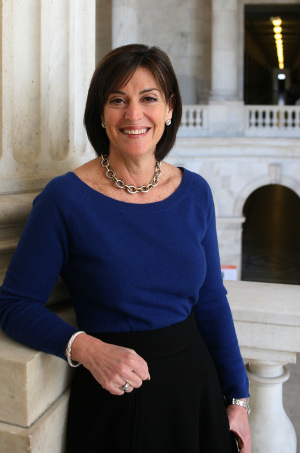
Sunshine Week 2009 takes place from March 15 through 21. The annual event is about the public's right to know what its government is doing, and why. Sunshine Week seeks to enlighten and empower people to play an active role in their government at all levels, and to give them access to information that makes their lives better and their communities stronger. Lake County News will present guest commentaries and news stories about open government as part of this year's Sunshine Week.
Imagine if Google worked this way: You type in a search term, and, at Google headquarters, an army of workers in the search department printed out the contents of every responsive Web page, then hauled them in wheelbarrows to a results department, where another army of workers typed the contents of those pages back into their computers.
Crazy? Indeed, but that's exactly how the Senate handles its campaign finance reports.
Federal election law requires candidates for the House of Representatives and the presidency to electronically file lists of their donors and their expenses. Unwilling to change with the times, senators continue to follow the practice they adopted in the 1970s.
They file paper reports of their campaign disclosures with the Senate Office of Public Records, which in turn has them shipped to the Federal Election Commission, which must then spend about $250,000 and untold hours having the records typed in, line by line, to the Federal Election Commission’s databases.
Today, all senators and their challengers use computers to track their donors and expenditures, but their archaic and expensive disclosure method keeps the public in the dark about who contributes to their campaigns in the final, critical weeks before Election Day.
The biggest problem is that Senate campaigns, unlike House or presidential campaigns, file reports on paper, and that means that well-heeled donors can bundle contributions in the final, critical weeks of a campaign – providing the funds necessary for last minute negative attack ads or push polls – with absolute anonymity. The public has a right to know who is contributing to senators’ campaigns – immediately, not four months after a paper report has been filed.
The Senate Campaign Disclosure Parity Act (S. 482), now pending in Congress, is the solution to this simple problem. The commonsense legislation, which has been languishing for several years, would bring the technology-averse Senate into modern times by requiring Senate campaigns to file their campaign reports electronically, like their counterparts seeking election to the House and the White House. This would result in timelier uploading of data by the FEC.
So far in 2009, no senator has publicly opposed this legislation, but Senate Minority Leader Mitch McConnell (R-Ky.) has a track record of blocking this reform. When an identical bill was considered in the 110th Congress (then known as S. 223), Republican senators used various parliamentary maneuvers to stop it. Ultimately, Sen. John Ensign (R-Nev.) blocked it by insisting on a vote on a contentious, unrelated amendment that would to chill ethics investigations of senators.
In the 111th Congress, Sen. Pat Roberts (R-Kan.) plans a repeat performance. His "poison pill" amendment is the same – it's intended to discourage groups from reporting questionable behavior by senators to the Ethics Committee by making them disclose information on their finances and donors. Groups like the National Legal Policy Center, which raised ethics charges about Democratic Reps. Charlie Rangel (D-N.Y.) and Alan Mollohan (D-W.Va.), would be deterred as much as those that have raised complaints against Republicans.
In fact, the amendment, which initially came from the offices of Sen. McConnell, has been called unconstitutional, a violation of the First Amendment, and is intended to protect sitting senators from ethics investigations. Beyond that, the Senate Ethics Committee has other means to obtain information about groups filing ethics complaints, including access IRS Form 990, which does not publicly disclose donors but does provide information on the leadership, finances and activities of 501(c) organizations.
Majority Leader Harry Reid (D-Nev.) is negotiating for a unanimous consent agreement that would prohibit any other amendments from being offered on S. 482. Sen. Reid, who supports this legislation, should actively whip his caucus to ensure that when the Senate considers the bill, every Democrat will support the bill and oppose the Roberts Amendment.
As the nation considers what an open government means, we should encourage Congress to become more transparent, as transparency is the cure to make sure the public is not kept in the dark as to who's funding whom and what they get in return. In the Internet age, that means the kind of electronic disclosure of campaign contributions that this bill mandates. It's time to give citizens 24/7 access to this information.
Ellen S. Miller is executive director and co-founder of the Sunlight Foundation in Washington, D.C.
{mos_sb_discuss:4}


 How to resolve AdBlock issue?
How to resolve AdBlock issue? 





